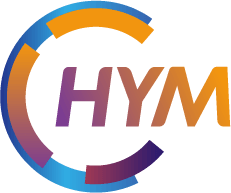 原标题: Personalization of ChatGPT: Examining its Benefits and Drawbacks
原标题: Personalization of ChatGPT: Examining its Benefits and Drawbacks
导读:
Introduction:ChatGPT, a language model powered by artificial intelligence (AI), has gain...
Introduction:
ChatGPT, a language model powered by artificial intelligence (AI), has gained considerable attention for its ability to generate human-like conversations. This essay aims to explore the advantages and disadvantages of personalizing ChatGPT, shedding light on the potential implications it might have on user experience and ethical concerns.
Benefits of Personalization with ChatGPT:
1. Enhanced User Experience:
Personalization can significantly enhance user satisfaction by tailoring responses to individual preferences and needs. By understanding specific contexts, interests, or requirements, ChatGPT can provide more accurate and relevant information, leading to an improved interaction between users and AI systems.
2. Efficient Information Retrieval:
Customized responses generated by personalized models like ChatGPT allow users to obtain desired information quickly without having to navigate through irrelevant or extraneous content. Such efficiency enables users to leverage AI technologies effectively for various purposes such as research, recommendation systems, customer support services, etc.
3. Increased Productivity:
Through customization options within ChatGPT's interface or application programming interfaces (APIs), businesses can streamline their operations further. They can create personalized conversational agents that assist in automating routine tasks efficiently while maintaining consistent branding across multiple touchpoints.
Drawbacks of Personalization with ChatGPT:
1. Reinforcing Existing Biases:
When personalizing AI models like ChatGPT based on user-specific data preferences or browsing history, there is a risk of amplifying existing biases present in the dataset used during training. It may unintentionally lead to discriminatory behavior or reinforce stereotypes if not carefully monitored and regulated.
2. Privacy Concerns:
Collecting personal data for personalization purposes raises questions about privacy infringement unless robust measures are implemented for secure storage and usage practices compliant with relevant legal frameworks such as General Data Protection Regulation (GDPR). Users must be informed about how their data will be used and have the choice to opt-in or opt-out of personalization features.
3. Limited Serendipity and Novelty:
Personalization aims to provide tailored information, but it can inadvertently limit exposure to diverse perspectives or novel ideas. Over-dependence on personalized AI systems like ChatGPT may discourage exploration outside users' comfort zones, hindering creative thinking and discovery of alternative viewpoints.
Conclusion:
The personalization of ChatGPT brings forth both benefits and drawbacks that need careful consideration. While it enhances user experience, improves efficiency, and boosts productivity in various domains, there is a pressing need for ethical guidelines to tackle biases, privacy concerns, and potential limitations on serendipitous discoveries within personalized interactions with AI systems.

